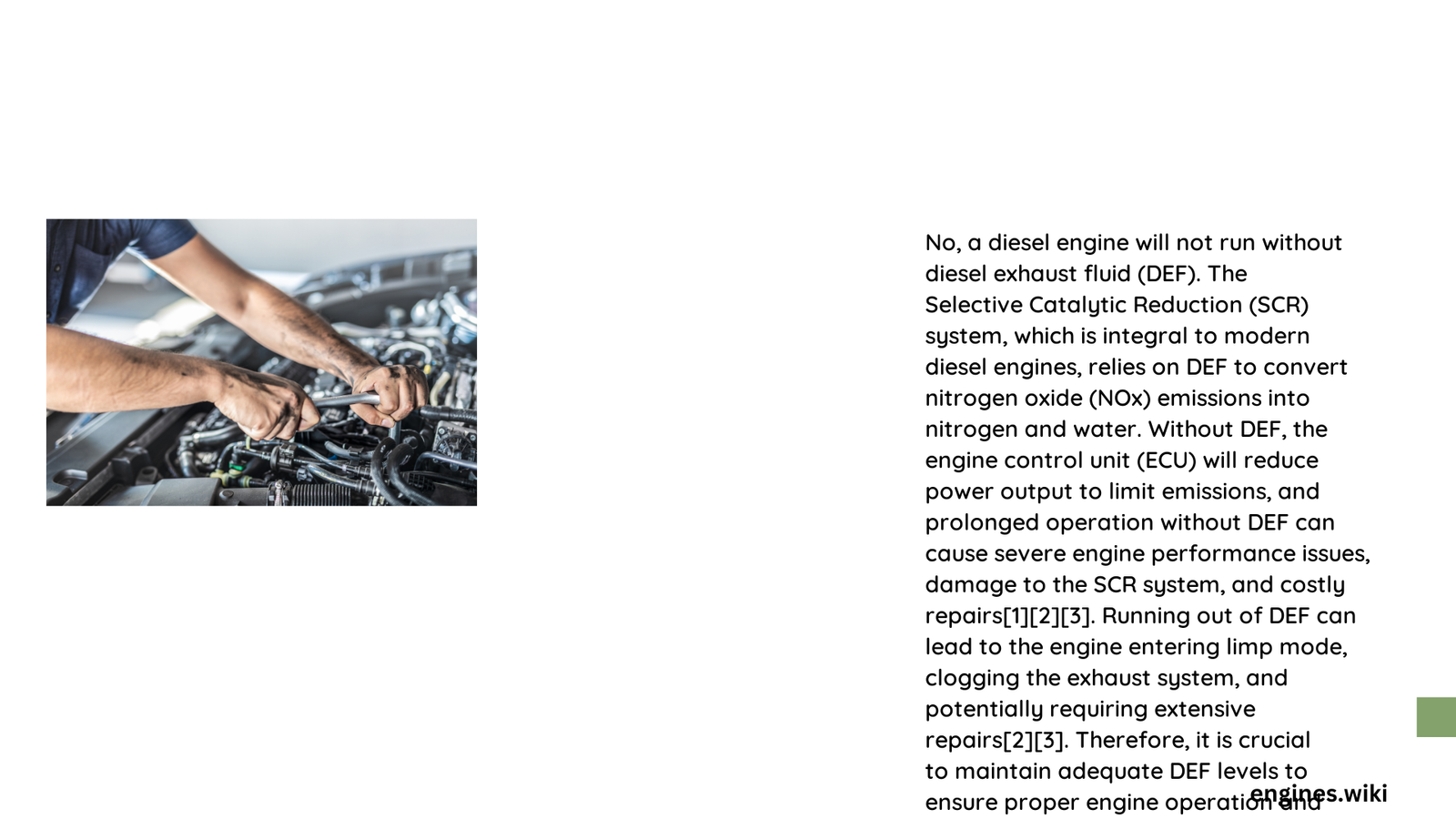Modern diesel engines are engineered with sophisticated emissions control systems that critically depend on Diesel Exhaust Fluid (DEF). Operating a diesel vehicle without DEF triggers complex performance restrictions, potentially causing significant engine complications, reduced power output, and legal non-compliance risks. Vehicle owners must understand the intricate technological mechanisms that mandate DEF usage for optimal engine functionality and environmental standards.
What Happens When Diesel Engine Operates Without DEF?
Can Diesel Engines Function Completely Without DEF?
Diesel engines equipped with Selective Catalytic Reduction (SCR) systems cannot operate normally without DEF. The fluid plays a crucial role in reducing nitrogen oxide (NOx) emissions and maintaining engine performance. Here’s a detailed breakdown of operational limitations:
Performance Degradation Mechanisms
- Reduced Power Mode Activation
- Engine automatically enters “limp mode”
- Significant power output reduction
-
Speed and acceleration severely restricted
-
Warning System Responses
- Dashboard alerts illuminate
- Continuous warning notifications
- Progressive system restrictions
| DEF Status | Engine Performance | Potential Consequences |
|---|---|---|
| Full DEF | Normal Operation | Optimal Efficiency |
| Low DEF | Reduced Power | Limited Mobility |
| No DEF | Restricted Mode | Potential Shutdown |
What Legal and Technical Implications Exist?
Regulatory frameworks mandate DEF usage for diesel engines, with significant consequences for non-compliance:
Emission Control Regulations
- EPA mandates strict emissions standards
- Potential fines ranging from $1,000 to $10,000
- Possible vehicle registration suspension
Technical System Protection Mechanisms
- Automatic power reduction prevents environmental violations
- SCR system prevents complete engine operation
- Protective shutdown prevents potential mechanical damage
How Does DEF Impact Overall Engine Health?
Continuous operation without DEF can cause:
– Accelerated exhaust system deterioration
– Increased maintenance costs
– Potential permanent engine component damage
– Voiding manufacturer warranties
What Are the Economic Consequences?
- Repair costs potentially exceeding $5,000
- Increased fuel consumption
- Reduced vehicle resale value
- Potential commercial vehicle operational restrictions
Technical Insights into DEF Functionality
DEF serves as a critical chemical agent that:
– Converts harmful nitrogen oxides into harmless nitrogen and water
– Operates at temperatures between 32-86 degrees Fahrenheit
– Requires precise injection ratios for optimal performance
Conclusion

Diesel engines cannot sustainably operate without DEF. The fluid is not optional but a mandatory component ensuring environmental compliance, engine protection, and optimal performance.
Recommendations
- Regularly monitor DEF levels
- Maintain consistent fluid quality
- Follow manufacturer guidelines
- Plan proactive maintenance schedules
